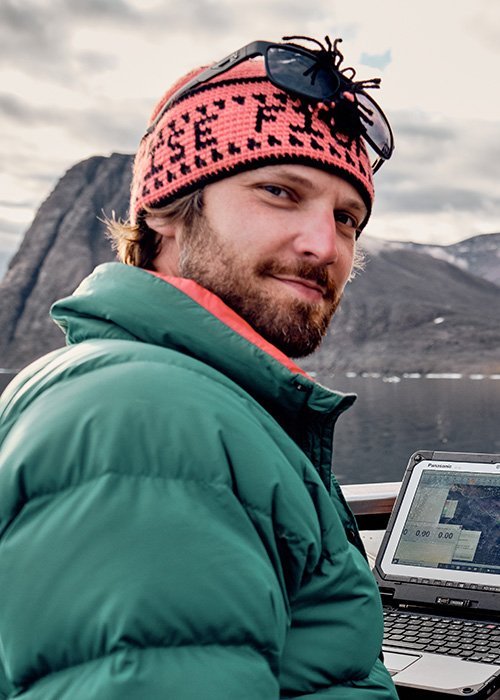French heard at the halls of the University Centre of the Westfjords
In recent days, the sound of French has filled the halls of the University Centre of the Westfjords (UW), thanks to a visit from welcomed guests from Canada. The Centre was pleased to welcome Dr. David Didier, university lecturer at the Université du Québec à Rimouski, accompanied by three colleagues and a group of twelve students in the field of geomorphology.
Dr. Didier has been connected with UW for nearly a decade, initially through collaboration with a French research group studying coastal erosion in the context of climate change and rising sea levels. He also participated in the international CoastGIS conference on geographic information systems, hosted by UW in 2018, and has since returned to teach courses and supervise students in their thesis work.
Although UW typically hires lecturers and supervisors on a short-term basis, these individuals are often drawn from the Centre’s growing professional network — a valuable asset for a small institution located on the shores of the Greenland Sea.
In recent years, Dr. Didier’s research has focused on the transformation of sandy beaches in an era of rising sea levels, particularly those along untouched, open-ocean coastlines. He has made regular visits to the University Centre over the years, conducting fieldwork in all seasons, including in Skálavík. One especially memorable field trip took place one April, when he and a group of students and colleagues hiked into Skálavík, pulling all their measuring equipment on sleds because of impassable roads. Over time, Dr. Didier has brought around twenty colleagues and students to the Westfjords, significantly strengthening UW’s network of research collaborators. These visits have also deepened connections with other regional institutions — particularly the Avalanche Centre of the Icelandic Weather Service, located in Ísafjörður.
This year, Dr. Didier was accompanied by an esteemed group of fellow academics. Among them was Professor Thomas Buffin-Bélanger, a specialist in flood management and natural hazards related to extreme flooding events. Also visiting was Professor Guillaume Marie, whose work focuses on coastal zone management and the physical processes shaping coastal systems. He is a member of an international working group on Integrated Coastal Zone Management, a core subject area within UW’s master’s program in Coastal and Marine Management. Rounding out the group was Professor Francis Gauthier, a geologist and geophysicist specializing in the geomorphological dynamics of hills and slopes and associated natural hazards such as landslides.
The visiting group of students and professors considered Iceland an ideal destination, offering areas of barren landscapes and uninhabited areas where geological formations are clearly visible and remain largely unaffected by vegetation or human activity. Their visit to the Westfjords also provided an excellent opportunity to engage with the Avalanche Centre and other regional research institutions.
